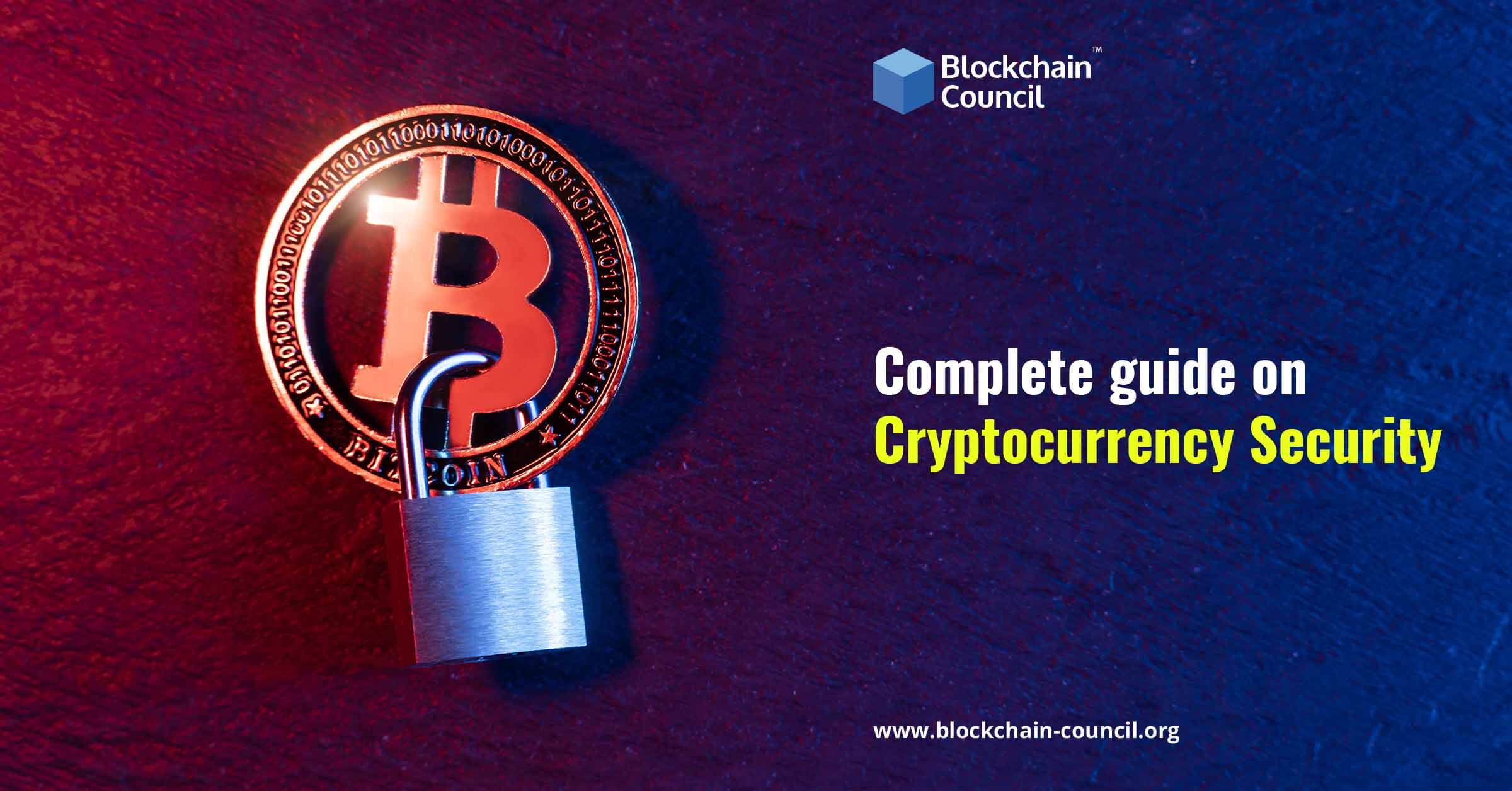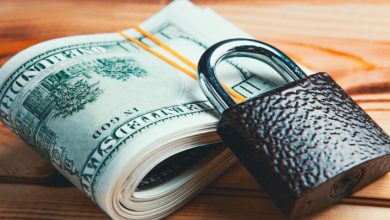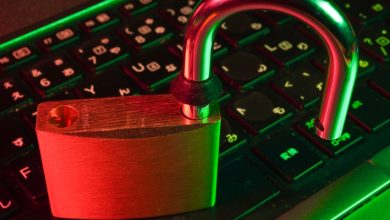Understanding the Basics of Cryptocurrency Security

- What is Cryptocurrency Security?
- Common Threats to Cryptocurrency Security
- Best Practices for Securing Your Cryptocurrency
- The Role of Private Keys in Cryptocurrency Security
- Protecting Your Cryptocurrency Wallet
- How to Recover Lost or Stolen Cryptocurrency
What is Cryptocurrency Security?
Cryptocurrency security refers to the measures put in place to protect digital assets from unauthorized access, theft, and other malicious activities. It is crucial to understand the importance of security when dealing with cryptocurrencies, as they are decentralized and lack the protection of traditional banking systems.
One of the key aspects of cryptocurrency security is the use of cryptographic techniques to secure transactions and control the creation of new units. This involves the use of public and private keys to encrypt and decrypt data, ensuring that only authorized users can access their funds.
Another important aspect of cryptocurrency security is the use of secure wallets to store digital assets. Wallets can be hardware-based or software-based, with each offering different levels of security. It is essential to choose a reputable wallet provider and follow best practices for securing your wallet, such as using strong passwords and enabling two-factor authentication.
Additionally, users should be cautious when sharing their personal information online and avoid falling victim to phishing scams and other fraudulent activities. It is essential to verify the legitimacy of websites and platforms before entering sensitive information or making transactions.
Overall, cryptocurrency security is a complex and evolving field that requires constant vigilance and proactive measures to protect your digital assets. By following best practices and staying informed about the latest security threats, you can minimize the risk of falling victim to cyber attacks and ensure the safety of your investments.
Common Threats to Cryptocurrency Security
There are several common threats to cryptocurrency security that users need to be aware of in order to protect their digital assets. One of the main risks is phishing attacks, where scammers try to trick individuals into revealing their private keys or login information through fake websites or emails. It is important to always verify the authenticity of websites and never share sensitive information.
Another threat is malware, which can infect a user’s device and steal their cryptocurrency. It is crucial to regularly update antivirus software and be cautious when downloading files or clicking on links from unknown sources. Additionally, cryptojacking is a growing concern, where hackers use malware to mine cryptocurrency using other people’s devices without their knowledge.
Furthermore, exchange hacks pose a significant risk to cryptocurrency security. Many exchanges have been targeted by hackers, resulting in the loss of millions of dollars worth of digital assets. To mitigate this risk, users should only use reputable exchanges with strong security measures in place, such as two-factor authentication and cold storage.
Lastly, social engineering attacks are another common threat to cryptocurrency security. Hackers may try to manipulate individuals into revealing their private keys or transferring funds through tactics such as impersonation or blackmail. It is important to be cautious of unsolicited requests for information and to never share sensitive data with unknown parties.
Best Practices for Securing Your Cryptocurrency
When it comes to securing your cryptocurrency, there are several best practices that you should follow to ensure the safety of your digital assets. One of the most important things you can do is to use a hardware wallet to store your cryptocurrency. Hardware wallets are physical devices that store your private keys offline, making them much more secure than online wallets.
Another important best practice is to enable two-factor authentication on all of your cryptocurrency accounts. Two-factor authentication adds an extra layer of security by requiring you to enter a code sent to your phone or email in addition to your password. This makes it much harder for hackers to gain access to your accounts.
It’s also crucial to keep your software up to date. Developers are constantly releasing updates to fix security vulnerabilities, so it’s important to install these updates as soon as they become available. Additionally, be cautious of phishing scams and only use reputable exchanges and wallets to trade and store your cryptocurrency.
Lastly, consider using a VPN when accessing your cryptocurrency accounts from public Wi-Fi networks. A VPN encrypts your internet connection, making it much harder for hackers to intercept your data. By following these best practices, you can help ensure the security of your cryptocurrency investments.
The Role of Private Keys in Cryptocurrency Security
Private keys play a crucial role in ensuring the security of cryptocurrency transactions. These keys are essentially a string of numbers and letters that are used to sign transactions, providing mathematical proof that the transaction has been authorized by the rightful owner of the cryptocurrency. Without the private key, it is impossible to access or transfer funds from a cryptocurrency wallet.
When a user creates a cryptocurrency wallet, a pair of keys is generated – a public key and a private key. The public key is used to generate the wallet address, which is shared with others to receive funds. On the other hand, the private key must be kept confidential and should never be shared with anyone. It is essentially the digital equivalent of a physical key that unlocks a safe deposit box.
It is important to note that whoever has access to the private key has control over the associated cryptocurrency funds. Therefore, it is crucial to store the private key securely to prevent unauthorized access. Many cryptocurrency users opt to store their private keys offline, in what is known as a cold storage wallet, to minimize the risk of hacking or theft.
In the event that a private key is lost or stolen, there is no way to recover it. This means that the associated cryptocurrency funds will be inaccessible forever. As such, it is essential to back up private keys and store them in a safe place. Additionally, users should consider using multi-signature wallets, which require multiple private keys to authorize a transaction, adding an extra layer of security.
Protecting Your Cryptocurrency Wallet
When it comes to protecting your cryptocurrency wallet, there are several important steps you can take to ensure the security of your digital assets. One of the most crucial measures is to use a hardware wallet, which is a physical device that stores your private keys offline, making it much harder for hackers to access your funds. Additionally, it is essential to enable two-factor authentication on your wallet to add an extra layer of security.
Another important aspect of protecting your cryptocurrency wallet is to regularly update your wallet software to the latest version. Developers often release updates to fix security vulnerabilities, so staying up to date is crucial in keeping your funds safe. It is also recommended to use strong, unique passwords for your wallet and to never share them with anyone.
Furthermore, it is essential to be cautious of phishing scams and only access your wallet through official websites or applications. Be wary of any unsolicited emails or messages asking for your private keys or personal information. Always double-check the URL of the website you are visiting to ensure it is legitimate.
In conclusion, protecting your cryptocurrency wallet is paramount in safeguarding your digital assets. By following these security measures, you can minimize the risk of theft and ensure that your funds remain secure. Remember to stay vigilant and proactive in your approach to cryptocurrency security to protect your investments.
How to Recover Lost or Stolen Cryptocurrency
If you have unfortunately lost or had your cryptocurrency stolen, there are steps you can take to try and recover it. The first thing you should do is to **contact** your **cryptocurrency** exchange or wallet provider immediately. They may have **security** measures in place to help **trace** and **recover** your **lost** funds. It is important to act quickly as time is of the essence when it comes to **recovering** **stolen** **cryptocurrency**.
Another **option** is to **report** the **incident** to the relevant authorities, such as the police or **cybersecurity** agencies. They may be able to **assist** in **investigating** the **theft** and **potentially** **recovering** your **funds**. It is **important** to provide as much **information** as possible about the **incident** to **help** with the **investigation**.
If you have **lost** your **cryptocurrency** due to a **phishing** **attack** or **hacking** **incident**, it is **crucial** to **improve** your **security** measures to prevent **future** **losses**. This may include **changing** your **passwords**, enabling **two-factor** **authentication**, and **keeping** your **private** **keys** **secure**. By **taking** these **precautions**, you can **reduce** the **risk** of **losing** your **cryptocurrency** in the **future**.
In **conclusion**, while **recovering** **lost** or **stolen** **cryptocurrency** can be **challenging**, it is **possible** with the **right** **steps** and **support**. By **acting** quickly, **reporting** the **incident** to the **authorities**, and **improving** your **security** measures, you can **increase** your **chances** of **recovering** your **funds**. Remember to **stay** **vigilant** and **take** **precautions** to **protect** your **cryptocurrency** **assets** in the **future**.




